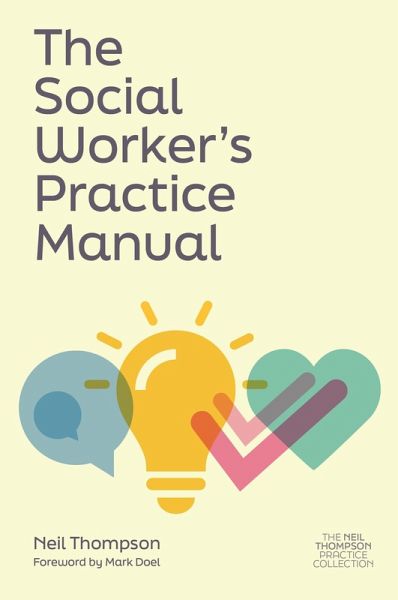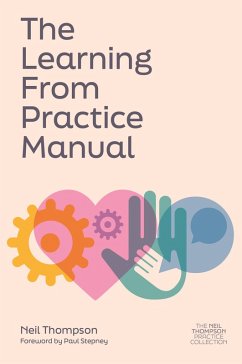
The Social Worker's Practice Manual (eBook, ePUB)
Versandkostenfrei!
Sofort per Download lieferbar
17,95 €
inkl. MwSt.
Weitere Ausgaben:

PAYBACK Punkte
9 °P sammeln!
An essential handbook for students and experienced social workers alike, this practical guide filters out the jargon and sets out what you really need to know. 30 easy-to-follow chapters delve into topics ranging from holistic thinking to effective record keeping, all rooted in Neil Thompson's extensive hands-on experience.Complicated subjects such as cultural sensitivity and managing conflict are discussed thoughtfully and pragmatically, helping you understand the roots of tricky situations and find effective solutions. Each section successfully combines theory and practice to give a holistic...
An essential handbook for students and experienced social workers alike, this practical guide filters out the jargon and sets out what you really need to know. 30 easy-to-follow chapters delve into topics ranging from holistic thinking to effective record keeping, all rooted in Neil Thompson's extensive hands-on experience.
Complicated subjects such as cultural sensitivity and managing conflict are discussed thoughtfully and pragmatically, helping you understand the roots of tricky situations and find effective solutions. Each section successfully combines theory and practice to give a holistic view of social work that can be tailored to help each unique client.
Over 45 years of experience distilled into one manual for success.
Complicated subjects such as cultural sensitivity and managing conflict are discussed thoughtfully and pragmatically, helping you understand the roots of tricky situations and find effective solutions. Each section successfully combines theory and practice to give a holistic view of social work that can be tailored to help each unique client.
Over 45 years of experience distilled into one manual for success.
Dieser Download kann aus rechtlichen Gründen nur mit Rechnungsadresse in A, D ausgeliefert werden.













